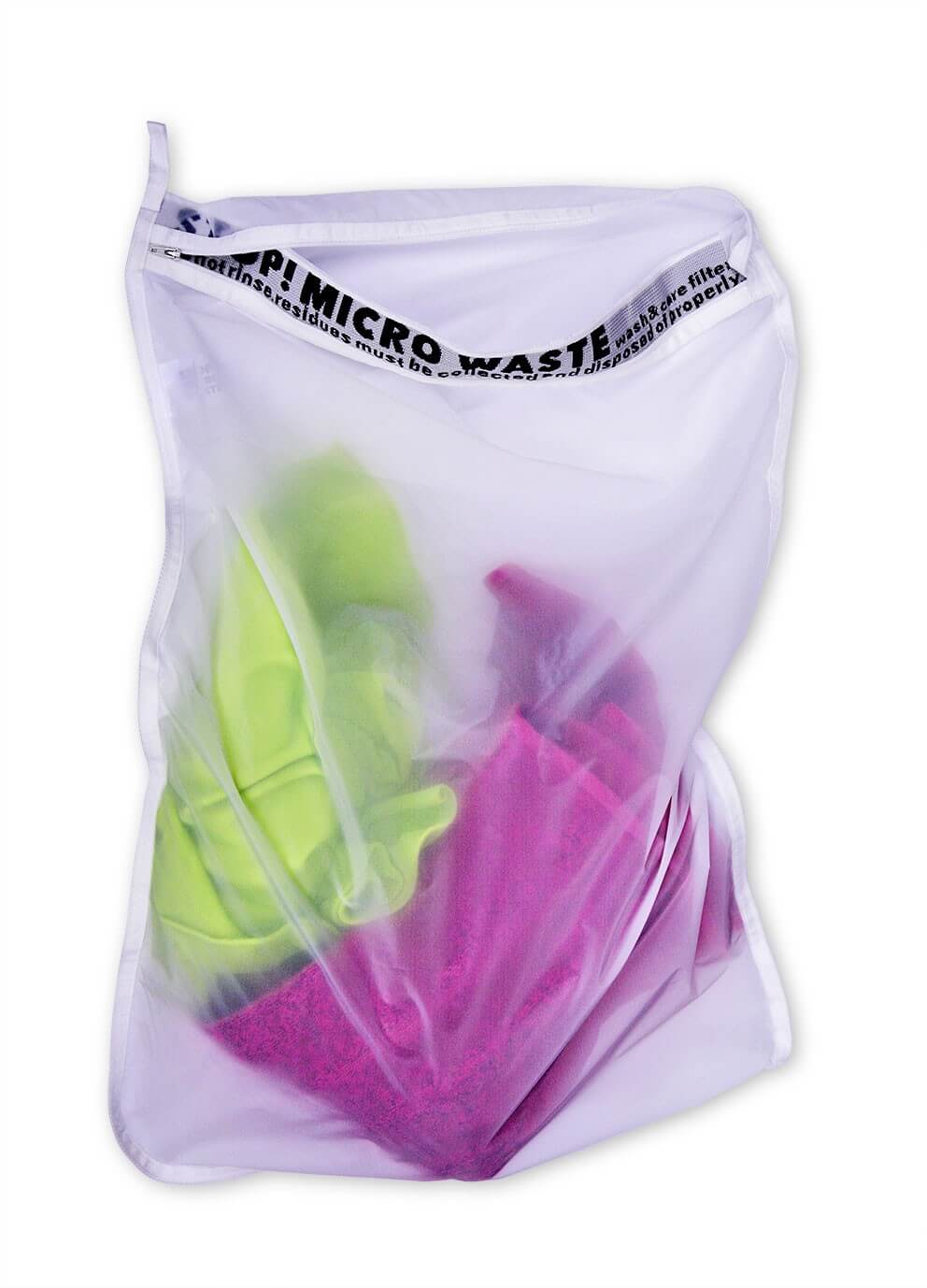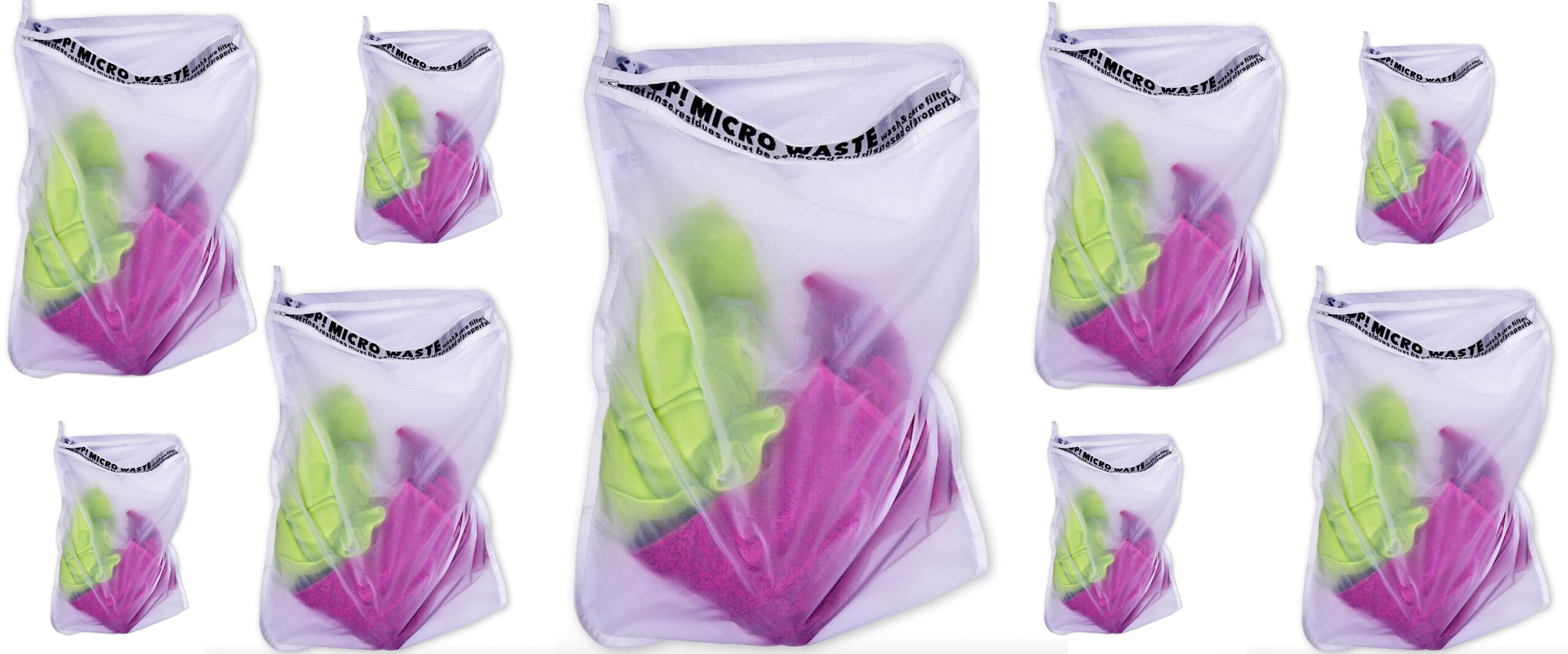Polyester and cotton are the two most common materials out of which our clothes are made today. Polyester is a relatively new material, which gained popularity due to technical advances after the second World War. Lately polyester, especially its harmful effects on the environment, has been discussed widely in discussions about fashion and sustainability. Polyester is a synthetic material made of oil, which is a non-renewable resource. The production process of oil and use of products made of oil is also harmful for the environment in many cases. However, the discussion sometimes forgets to mention in which ways polyester can be the more sustainable option, than other natural materials. That is why I have decided to look at the pros and cons of polyester and tell you a bit about them.
One of the biggest cons of polyester is that it is a type of plastic. This means that it releases microplastics during wash and the production process. It can also release carcinogens during the production process, which has harmful effects on the factory workers and the environment around the factories. Microplastics are small particles of plastic, which pollute our waters, the food we eat and the nature, if they are released. It is estimated that one piece of clothing made of polyester releases 1.900 particles of plastic each wash. This is without doubt a big problem globally. In the Nordic countries, however, most wastewater treatment plants eliminate 99% of all micro plastics. To further eliminate the release of microplastics into the wastewater, you can use a washing bad when washing your polyester clothes.

Reduce microplastics in our waters by washing your synthetic clothes in a washing bag for microplastics.
The dyeing of polyester requires a special dyeing process since polyester does not dye easily. The process releases toxic waste that pollutes the surrounding environment. However, the same applies to dyeing processes of other fabrics, with exception for fabrics that are dyed with natural dyes. To dye polyester, you must dye the whole fibre, unlike for many natural materials like cotton where only the outer layer of the fibre is dyed. Because of this the colors don’t fade during wash, as opposed to the color in clothing made of cotton. Polyester does not stain easily either.

Our patterned dress BEATA will not fade during wash.
Polyester uses very little water in the production process compared to cotton. It is hard to compare those two, since one of the fabrics is synthetic and the other one is natural, but it is estimated that polyester only uses 0,1% of the water required to make cotton. The making of a cotton t-shirt is estimated to require 2,700 liters of water. What makes the comparison hard is that it is impossible to know how much water is polluted by for example oil spill for polyester or contamination from pesticides for cotton. The making of polyester in turn requires twice as much energy as the making of cotton fabrics.
When it comes to washing the fabrics, it is the other way around. Polyester requires washing more often than cotton since bad odors become prominent faster on polyester clothing than on cotton. Cotton in turn can be aired in stead of washed, but if it requires washing the drying process takes a lot longer than for polyester, which requires more energy if you use a tumbler. Polyester does not crease and does not require ironing as opposed to cotton. Polyester clothing doesn’t lose its shape during wash either.

DORIS only needs to be washed, air dried and then worn! No need for ironing and the blouse will not get wrinkly during the day. Our polyester garments contain a bit viscose also, and they are very soft and comfortable to wear!
Polyester is not biodegradable and is a very durable material. This means that your polyester shirt will keep its properties for at least 20, if not for 200 years. Many natural materials are mixed with polyester to make them more durable – this is very common for example for socks, which wear fast. Polyester can be recycled and made into new polyester even though it’s not biodegradable. It is also possible to make polyester out of for example recycled PET bottles!
Polyester is hard to replace since such a large quantity of our clothes is made from it and the price of cotton would rise significantly if the production of polyester halted. Polyester is a very cheap fabric which makes it accessible to people all over the world. Unfortunately, many large fast fashion retailers take advantage of this cheap price to mass-produce clothes fast in unsustainably large amounts and often of poor-quality polyester. Polyester of high quality is very durable, while polyester of low quality may only last a couple of washes. The clothes of lesser quality wear faster and do not last long, which creates an unsustainable vicious cycle when consumers are forced to buy clothes more often.
The most negative aspect of polyester, which also happens to be its most positive aspect is that it essentially is a type of plastic. The plastic particles and the manufacturing of it pollutes the environment. At the same time, it makes it a very long-lasting fabric, if the quality of the polyester is high. You can use your pieces of clothing made of polyester for years and years and they will still look just as fresh as the day you bought them. The most important thing to remember when it comes to buying clothes sustainably, is to buy less and use the clothes you do buy often and for a long time. The way in which polyester is used in fast fashion is unsustainable, but if you make sure to buy polyester clothes you love and know that you will use for a long time, it can be a sustainable choice in the end.
Especially if you make sure to give the clothes a new life by selling them, donating them or recycling the clothes when it is time. If you want to know more about different materials, their origin and what they typically are used for you can click here >>> to get to Marie’s school of materials.
Hugs,
Marie

